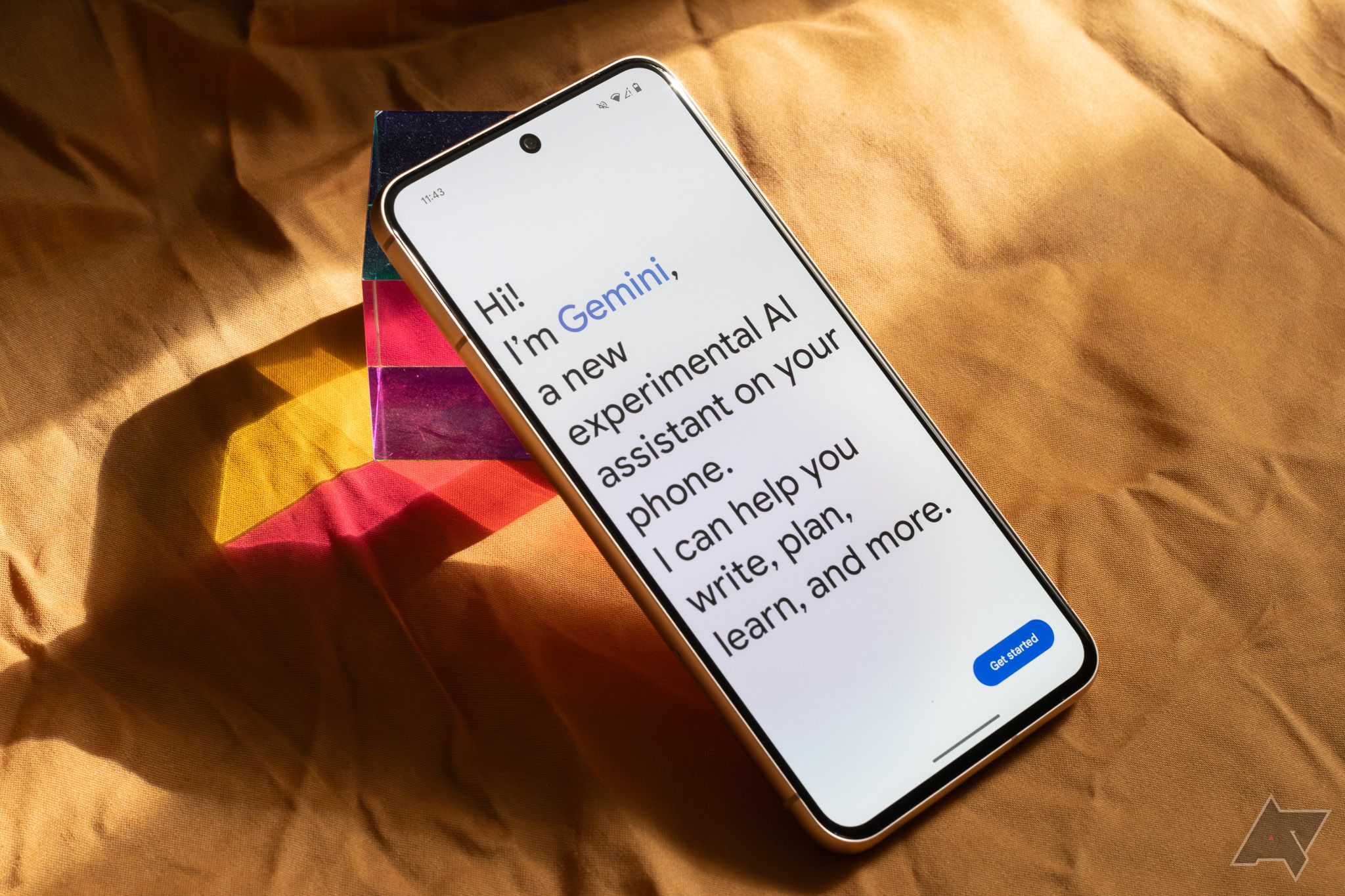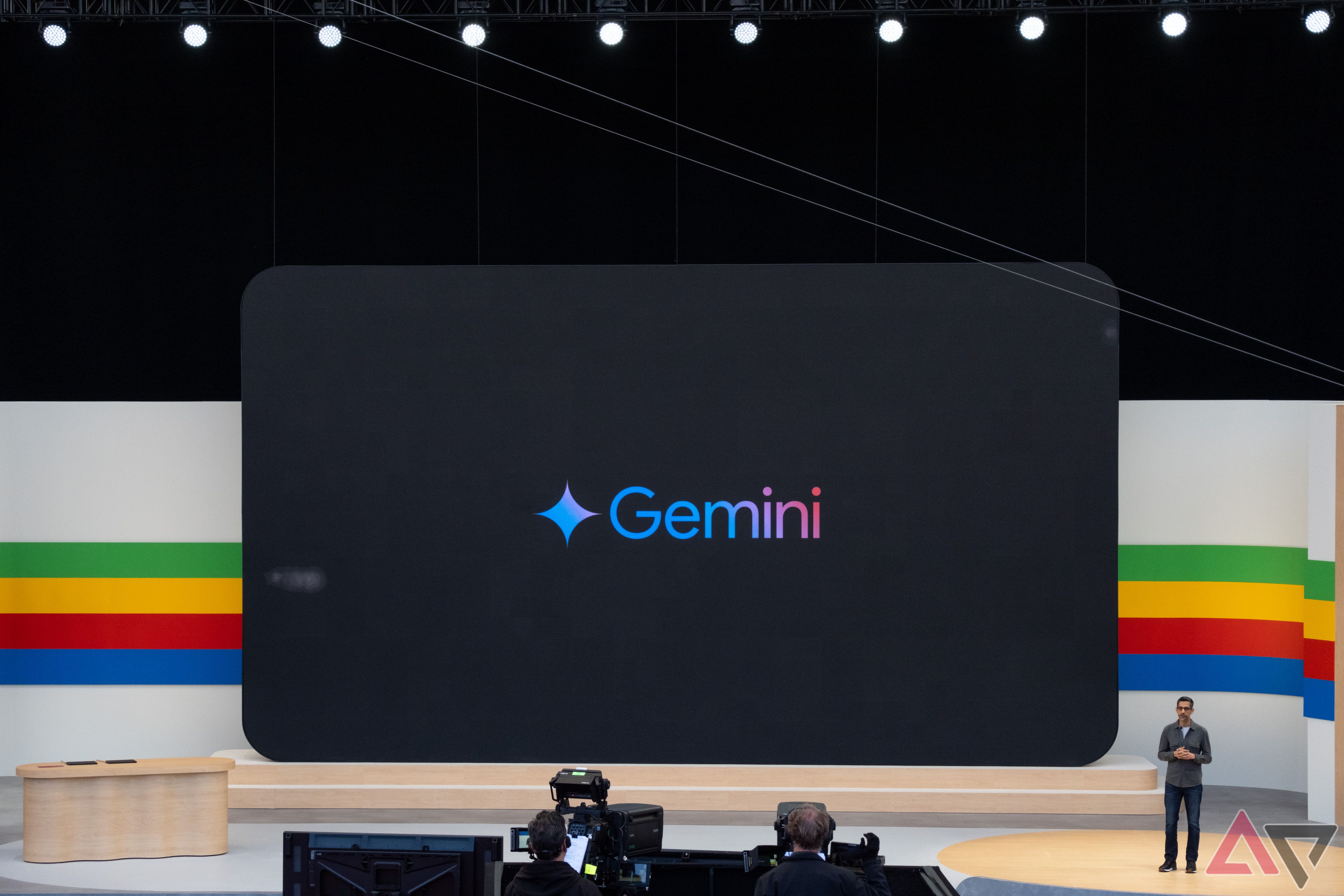Since Samsung launched the Galaxy S24 in January, AI has been front and center in nearly every mobile product. Google Gemini models power Galaxy AI behind the scenes, and other big names like Microsoft’s Copilot+ and OpenAI’s ChatGPT-4o have made waves in the last five months. There are also AI efforts from many phone makers, and yesterday, Apple joined the AI party.

ChatGPT vs. Gemini: Which gives the better answers?
Gemini is bringing ChatGPT some much needed competition
Named Apple Intelligence (do you get it?), Apple’s first foray into real on-device AI is all about Personal Intelligence. The company has taken its own approach to building AI and has learned from the competition. The result is what I believe to be the best implementation of AI on any smartphone to date, and it will no doubt have Android makers worried when it launches later this year.
Here’s why Apple Intelligence has shown what Google Gemini and Galaxy AI should have been right from the start.
What is Apple Intelligence?
Apple Intelligence is Apple’s answer to AI on your devices. Unlike Samsung and Google, which focused on specific AI apps and features, Apple built it into the fabric of iOS, iPadOS, and macOS. The result is AI that seems more useful, delivering on Apple’s goal of “AI for the rest of us.”
Built using a custom Large Language Model (LLM), it uses personal context from your phone to deliver a unique AI experience. It’s not an app or specific feature, but rather a platform that lets you tap into AI across all your Apple devices. Many Apple Intelligence actions happen on-device, but when you need more capability, Apple offloads specific tasks to the cloud.
Privacy was front and center throughout Apple’s keynote, which doesn’t always mesh well with cloud-based services. The result of this conundrum is Private Cloud Compute. When you need more power, Apple Intelligence offloads specific tasks and data to your cloud computing capabilities to generate the best answer, all without allowing anyone (or anything) to access this info — not even Apple itself.
Apple Intelligence is the bedrock of the new Siri voice assistant, and it’s an overhaul that looks poised to take Siri from the worst smartphone assistant to the best. The assistant has always struggled with pulling relevant information from the web, but the new AI-backed Siri marks a change in approach. Apple’s own LLM will make Siri better at understanding what you mean, and it will give the assistant the contextual awareness it has lacked in years past. And when you need to search the web, recall specific facts, or just have a general query not covered by Apple’s LLM, Siri can tap into additional LLMs, starting with ChatGPT.
It’s an elegant implementation that shows this wasn’t a quick decision to implement AI but rather an approach with great care and consideration for use and experience. This puts it in stark contrast to everything that’s come before.
A better approach to AI
Apple targeted other AI platforms by focusing on these areas.
Apple prefers to follow rather than lead, biding its time and learning from competitors’ endeavors before implementing its approach to the same problem. Apple Intelligence is the epitome of this: Apple let Samsung and Google go first but ensured that it approached AI from a completely different perspective.
In a similar vein, Google I/O 2024 was seen by many as a reaction from Google to ChatGPT-4o, which had been announced the day before. The world expected it to react, especially as Microsoft has backed OpenAI (the maker of ChatGPT) and is implementing its tools in Bing. Google’s reaction was to reel off a huge amount of AI features and stats and mention AI 121 times in a two-hour keynote dedicated to AI and not much else.
Google Gemini itself was borne out of reaction to industry pressure, much like Apple Intelligence. But differences in approach and ethos have led the companies down diverging paths in their efforts to play catch-up with OpenAI. While Google rushed Gemini to market as essentially a clone of ChatGPT with a few phone-specific features, Apple took a step back and realized that if it implemented AI, it needed to be done in a way that would help you throughout your experience. And Google will always push you to Gemini, whereas Apple Intelligence wants to give you the best of all worlds. The contrast could not be greater, and Apple will ensure the world is aware of it.
Apple can market AI, but Google can’t
When the iPhone 16 launches in September and iOS 18 is released, Apple Intelligence will be at the forefront of all the company’s advertising. As a result, I predict that a significant number of average consumers will begin to assume AI stands for Apple Intelligence by the end of the year.
Apple’s ability to market AI and its approach to making an “AI for the rest of us” puts it firmly at odds with the competition. Google doesn’t even know what it wants its AI to be called. Google Now became Google Assistant, even though Now still exists in some forms, and then there’s Gemini, which is and isn’t a replacement for Google Assistant. Google doesn’t know how to brand its products or market them.
Apple doesn’t go first, but it does force market trends
Video calling and facial recognition are just some of the widely available features that Apple was late adopting, but thanks to its adoption, ultimately became universally popular. Many new features in iOS 18 are widely available on Android devices and, in some cases, have been for years.
Apple innovates in some ways, but in others, the company adopts what’s working elsewhere (externally or even inside its ecosystem with third-party apps.) Apple’s marketing prowess then impresses these features on the average user in a way that no other brand can, although Samsung comes closest. Apple’s push to allow Siri to work directly with apps means many developers will build with this in mind, creating better AI experiences on the iPhone.

5 new Gemini AI features that could change your life
Now all Google has to do is actually deliver
For six months, the word AI has been pushed on mobile customers with little consideration for user privacy, concerns, and experience. Apple chose to take a step back, think about the use cases for AI, and then build an experience that seems to be second to none. This initial reaction is based on the claims and demos during the keynote, but Apple Intelligence is what Google Gemini should have been from the start.
Nirave is a creator, evangelist, and founder of House of Tech, covering the best technology with a focus on its impact. Following a heart attack at 33, he’s been focused on the impact of technology on our mental, physical, and emotional health. Read his Impact by House of Tech newsletter or follow him on Instagram, Twitter, and LinkedIn for more.











